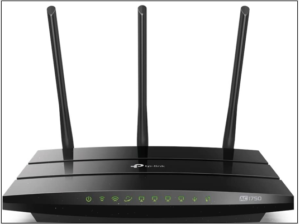With the popularity of smartphones, everyone has become accustomed to accessing WiFi networks anywhere, anytime. Because wireless LAN (WLAN) access is simple and transparent, WiFi devices in companies, shopping centers, or hotels seem to work just like home WiFi. However, there are significant differences in these Wi-Fi devices, and it is important to understand these differences when setting up a corporate WiFi network. So I’ll briefly explain what the differences are.
From the appearance to distinguish, of course, home router WiFi and enterprise AP WiFi differences are still relatively large.

Home router

Enterprise router
Routers are divided into three categories: telecom grade, enterprise-grade, and home grade. The performance difference between routers without using levels is relatively large. The biggest difference between enterprise routers and home routers is traffic control, access authentication, and band capacity. Enterprise routers can meet the simultaneous access of hundreds of users, while home routers can only meet the access of dozens of devices.
Different stability requirements
Enterprise routers need to be kept on all year round, with high reliability and stability requirements; after all, an enterprise network outage can bring incalculable losses to the enterprise.
The reliability and stability requirements of home routers are lower than those of enterprise routers. For example, when the network speed is relatively slow, it is often necessary to restart the router to return to normal.
Different prices
Price is another difference. A home WiFi router costs tens to hundreds of dollars, while a commercial AP costs hundreds or thousands of dollars. The reason for the price difference lies in the AP’s many advanced features, beginning with the interface ports.
Different heat dissipation
Our home routers are usually made of engineering plastic as the casing, and enterprise routers use metal casings. Relatively speaking, the heat dissipation performance of the metal shell is better than that of engineering plastics, and the stability is also higher.
Different functions
Enterprise routers have strong hardware performance, and in addition to completing regular routing and forwarding functions, they can also achieve traffic control, Internet behavior control, access authentication, and other functions to realize fine management of enterprise networks. Some enterprise routers have network security defense functions to protect the security of the intranet.
Home routers focus on ease of use, simple configuration, and only complete basic broadband access, routing forwarding, wireless AP, and other functions.
In short, enterprise routers and home routers are suitable for different occasions. Enterprise routers are suitable for large-scale enterprise network networking and can achieve precise control of the network; home wireless routers are biased towards ease of use and complete home network access.
Thanks! Any ideas are welcome to leave a message. csd@telecomate.com

Leave a comment